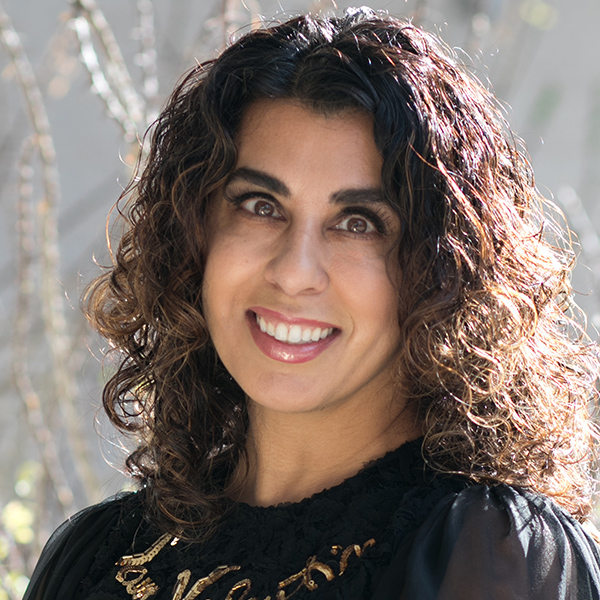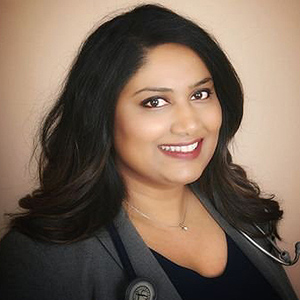Interview With Martha Gulati, MD, MS, FACC

Martha Gulati, MD, MS, FACC, is the division chief of cardiology for the UA College of Medicine – Pheonix, and physician executive director for the Banner – University Medicine Heart Institute. She is also the best-selling author of Saving Women's Hearts and editor-in-chief of ACC's CardioSmart.
For her extensive work as an advocate for women's heart health, Gulati is the recipient of ACC's 2019 Bernadine Healy Women's Cardiovascular Disease Award. In this two-part interview, Gulati reflects on her experiences and shares advice for Fellows in Training (FITs).
Despite near equal representation among internal medicine graduates, women still only hold a minority of cardiology fellowship positions. What can we do in the cardiology community to encourage women to pursue fellowship training?
The most important thing we can do is actively encourage not only women but also the upcoming Millennial generation that cardiology is a great career. Right now, the face of cardiology looks continuously more like men and I think that is part of the reason that our younger women, medical students and residents do not consider it as an option.
I heard recently that the percentage of women in urology fellowship is higher than in cardiology. We have got to do better, as we have been looking at this since my time in fellowship. A recent survey showed that women in cardiology represented only 13.2 percent of the workforce in 2015; that is not much better than statistics from 2007.
Cardiologists are in demand, which means we have the negotiating power to create the type of job we want. For example, if there are times in your life when you need a little bit more focus at home, you can afford that time.
We need to show women that there is room to be flexible; whether it is job sharing, working one day a week at home or having an 80 percent clinical job where they take one day of the week off – whatever they need to enter our community. If we show examples of people doing different things, it is more likely that women will say, "I can do that job."
We must start by asking residents why they do not choose cardiology. In addition, we need to highlight the best of what cardiology has to offer everyone, especially our ability to be flexible. If we do not represent our community and attract diversity – both gender and ethnicity-based balance – we will all be worse for it.
You have long advocated for women's heart health and your work has changed the way we think about cardiovascular disease. How important was mentorship in your career? Who were your mentors?
Without mentors, I would not be the person I am today. I use the plural because one person is not going to serve as your mentor for everything; you need a life mentor, career mentor, research mentor, etc. You build a circle of people that support you in good and difficult times, and are honest and frank.
Len Sternberg, MD, from the University of Toronto, was one of my mentors in medical school. I was assigned to him for my cardiology rotation and he said to me, "You're going to be a cardiologist, come with me on Wednesday's."
As Sternberg let me work-up patients and observe cases in the cath lab, he further opened my mind to cardiology as a career. He has remained a dear friend of mine and even traveled to Italy for my wedding.
During fellowship at the University of Chicago, one of my most important mentors who was also an advocate for women in cardiology was Mort F. Arnsdorf, MD. He knew I was interested in women's cardiovascular health but that we did not have anything related to it at the University of Chicago.
At the end of my fellowship, I decided to get a Master's Degree in statistics and came to him looking for a thesis project. He had this data where the investigator died and said, "It is just sitting there and it would be awesome if you opened it up." This idea was the St. James Women Take Heart Project, which I published in the early part of my career. That was my break.
Arnsdorf also connected me with the WISE cohort and my future mentors Leslee J. Shaw, PhD, FACC, and C. Noel Bairey Merz, MD, FACC. I met the whole WISE study group the night before my first presentation at the American Heart Association.
The following day, I was preparing to present to a sea of men in a big room when Merz and a whole group of women who worked with her walked in together, right up to the front and made their presence known.
Their support meant so much to me as I had never presented at a national meeting and was very nervous.
I always remember that moment and make an effort to support young women whom I know or have worked with that are presenting, whether it be a poster, oral or on the big stage.
I met Nanette K. Wenger, MD, MACC, a giant in our cardiology world, while I was in medical school in Canada. I am very lucky to count her as a mentor and dear friend. She has worked with me on several projects, opened doors and promoted me – and I am always so honored.
Other mentors include Rory Childers, MD; Jennifer H. Mieres, MD, FACC; Sharon L. Mulvagh, MD, FACC; and Sharonne N. Hayes, MD, FACC. All of them served as sponsors and mentors at different times, being both career and personal life coaches when needed.
Choosing mentors during training is easy since it is often our attendings, but can be difficult when we start our first jobs. It can vary based on the culture and relationships amongst attendings, or whether there is anyone that even fits with your needs.
Today, I think it is fantastic how FITs have access to a vast network and opportunities to connect with mentors across the country via social media. You meet people in these meetings and connect with them on social media, maybe one day go to their town and mention it on Twitter, and then eventually they reach out to meet up and your relationship develops.
As my circle grew, these connections became the key to open all these doors for me – I could write a book about how many people helped me along the way!


